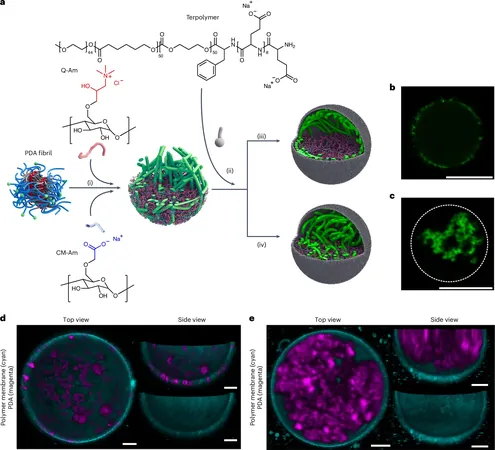
Breakthrough Study Reveals Key to Early Diagnosis of Lewy Body Dementia
2025-01-11
Author: Yu
Groundbreaking Study Overview
A groundbreaking new study published in *Alzheimer's & Dementia* has unveiled cognitive profiles crucial for the early diagnosis of Dementia with Lewy Bodies (DLB), a form of dementia that often goes undetected until significant damage is done.
This research is particularly timely, as DLB is the second most prevalent neurodegenerative dementia following Alzheimer's Disease, yet it is frequently misdiagnosed, which can delay critical interventions and tailored care.
Research Significance
Lead author Dr. Ece Bayram, assistant professor of neurology at the University of Colorado Anschutz Medical Campus, explained the vital drive behind this research.
"While there are existing criteria for identifying DLB in research settings, we aimed to compile extensive studies to create practical solutions for clinical use. Our findings establish a cognitive profile that can effectively differentiate DLB from Alzheimer's even before dementia fully manifests, enabling healthcare providers to tailor care more accurately."
Key Findings
The researchers conducted a meta-analysis focusing on individuals at the pre-dementia stage and discovered that those suffering from DLB exhibited more significant deficits in attention, processing speed, and executive function when compared to their Alzheimer's counterparts.
Conversely, individuals with DLB showed better immediate recall and memory capabilities.
Practical Implications
Dr. Bayram emphasized the practical implications of this research.
“By outlining cognitive profiles, we can provide clinicians with actionable guidelines that require straightforward training. In fact, implementing cognitive assessments is typically more accessible and cost-effective than advanced imaging or invasive biomarker tests,” she added.
Impact on Patients and Caregivers
Identifying DLB early holds profound implications not just for patients but also for their caregivers.
Receiving the correct diagnosis can lead to more suitable treatment options and better coping strategies. For instance, patients with DLB can experience adverse reactions to certain psychosis medications, like haloperidol, which may exacerbate their condition.
Future Prospects
Furthermore, Dr. Bayram expressed optimism regarding future endeavors in dementia care:
“There is an increase in treatment trials aimed at disease modification for both Alzheimer's and Lewy body dementia. Our validated clinical criteria pave the way for proactive measures that could hinder the progression of dementia before irreversible brain changes occur, thus facilitating better outcomes for individuals regardless of their access to specialized care.”
Conclusion
This study stands as an exciting leap forward in the realm of dementia research and care, highlighting the pressing need for more awareness and diagnostic training in clinical settings.
With earlier and more accurate identification of DLB, the healthcare community can take essential steps toward not only improving patients' quality of life but potentially altering the course of the disease itself.
Resources for Support
For those seeking support or more information about DLB, numerous resources are available, shedding light on coping strategies and care options for affected individuals and their loved ones.




 Brasil (PT)
Brasil (PT)
 Canada (EN)
Canada (EN)
 Chile (ES)
Chile (ES)
 Česko (CS)
Česko (CS)
 대한민국 (KO)
대한민국 (KO)
 España (ES)
España (ES)
 France (FR)
France (FR)
 Hong Kong (EN)
Hong Kong (EN)
 Italia (IT)
Italia (IT)
 日本 (JA)
日本 (JA)
 Magyarország (HU)
Magyarország (HU)
 Norge (NO)
Norge (NO)
 Polska (PL)
Polska (PL)
 Schweiz (DE)
Schweiz (DE)
 Singapore (EN)
Singapore (EN)
 Sverige (SV)
Sverige (SV)
 Suomi (FI)
Suomi (FI)
 Türkiye (TR)
Türkiye (TR)